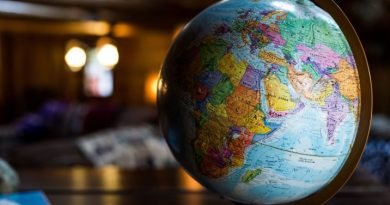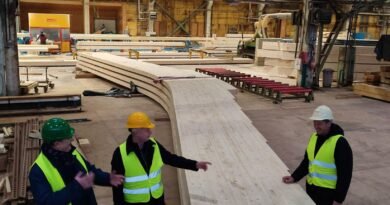Study: chemicals and petroleum products industries make the largest GHG footprint in Lithuania
The new report prepared by the analysts of the Innovation Agency based on the study “Green transformation of Lithuanian industry 2050: Analysis, scenarios and recommendations of manufacturing industry sectors with the largest GHG footprint” is now available.
Lithuania is an industrialized country, and its local manufacturing sector has a significant impact on the climate. Lithuanian manufacturing produces a significant greenhouse gas (GHG) footprint, which accounts for about 15 percent of all Lithuanian GHG emissions. The report notes that most of these emissions come from technological processes that are difficult to decarbonize, such as ammonia and cement production. The production of chemicals, chemicals and refined petroleum products are the two industries with the largest GHG footprint in Lithuania, whose emissions in 2021 respectively accounted for 34 percent. and 22.7 percent of GHG emissions of all Lithuanian industry and construction. Together with other activities such as the production of chemicals, chemicals, refined petroleum, other non-metallic mineral products, food and beverages, these activities account for more than 80 percent. of all Lithuanian industrial emissions.
The analysis identifies the most polluting manufacturing sectors, which are most closely related to the industrial transition to climate neutrality. Also analyzed are six groups of technological solutions that are applied to the green transformation of industry: carbon dioxide collection and storage technologies, use of biomass and renewable energy resources in electricity production, increasing energy efficiency, use of green hydrogen, and circular economy solutions. Based on this analysis, development scenarios aimed at reducing absolute net GHG emissions have been determined: by 2030 footprint should be 20 percent. lower, until 2040 – 60 percent lower, and by 2050 – 100 percent lower compared to previous years. These scenarios take into account projected technological progress and applicability in the respective sectors.
The study emphasizes a holistic approach to the transformation of Lithuania’s green industry and emphasizes that there is no single magic solution. It is a complex technological and socioeconomic process that is heavily dependent on innovation. Decarbonisation is necessary and beneficial in the long term, but it requires significant human and financial investment from the private and public sectors now.
You can read the report here.




